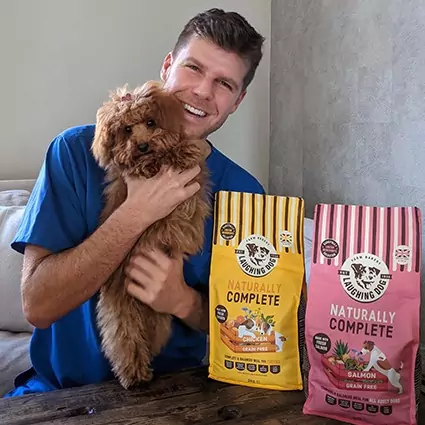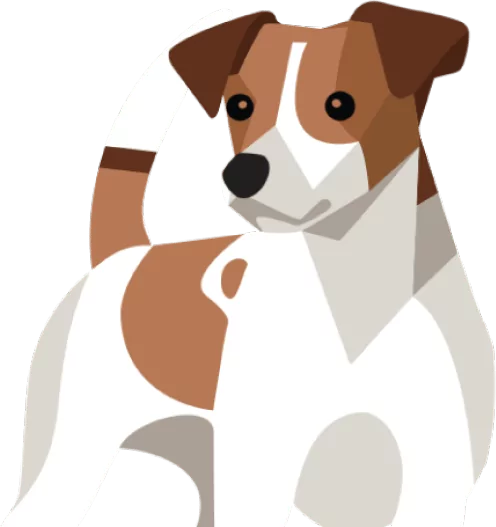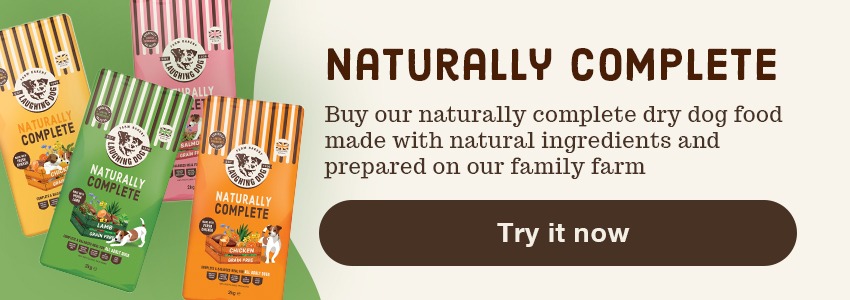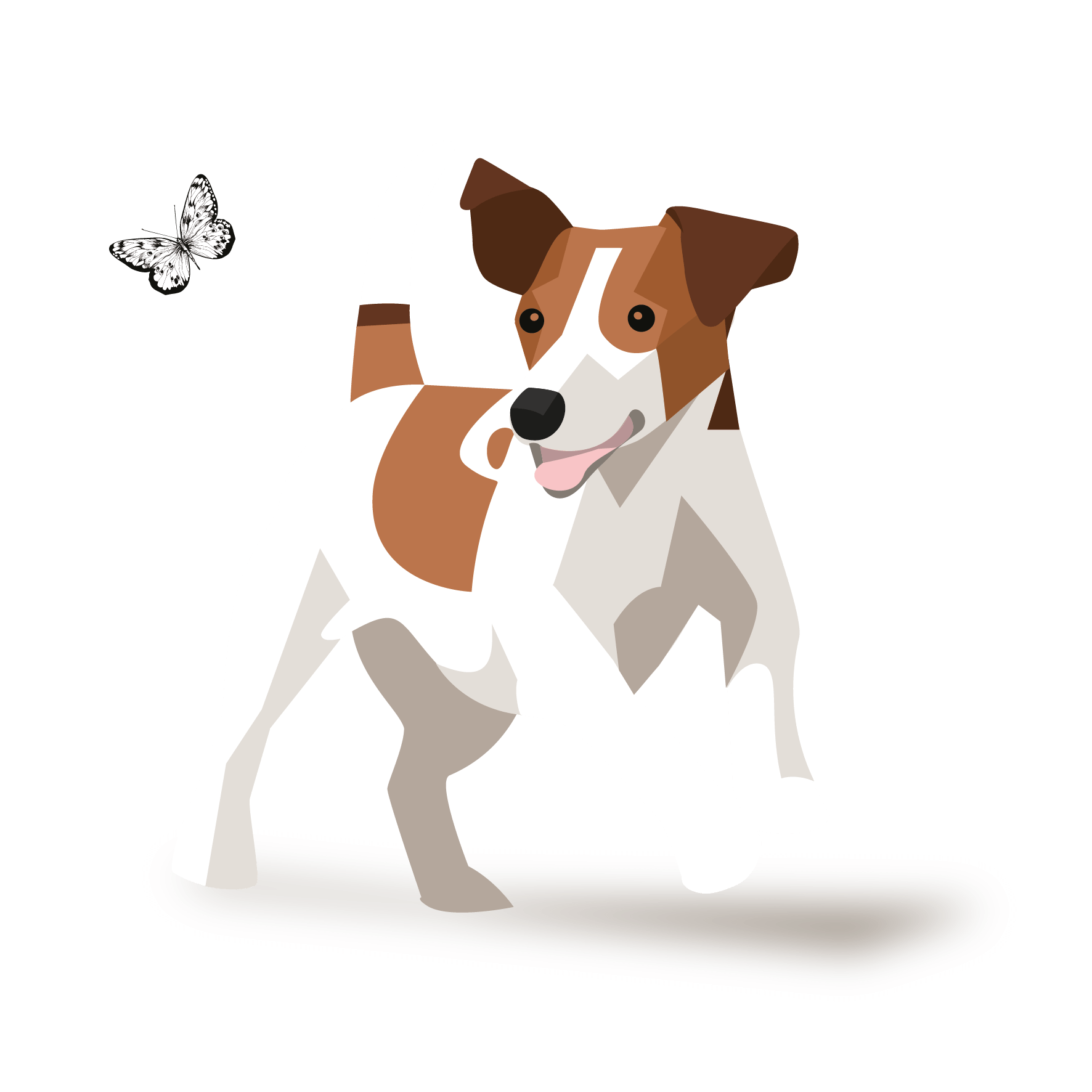
Today we aim to give you a quick list of these toxic foods for dogs and tell you how you can prevent your dog from getting their teeth into them!
As dog health advocates ourselves, we feel it is important to only provide you with the most reliable sources of information. We have therefore teamed up with a dog health expert and qualified vet; Dr. Michael, to get his advice on foods for your dogs to avoid.
“There are several foods and human medications that are toxic to dogs, and some can even be fatal. Familiarise yourself with some of the most common toxicities vets see in dogs and make an effort to keep them far away from your dog to ensure they stay healthy and happy. Many people know chocolate is off limits; in fact, the darker, the more dangerous. However, but other household regulars such as caffeine, grapes, raisins, sultanas, and even onions and garlic, need to be kept safely out of reach”.
Why is chocolate bad for dogs?
Chocolate is a hugely popular and widely loved treat for us humans. Most dog owners know to avoid giving their dogs chocolate, but a lot of pet parents don’t understand why. If chocolate is so tasty for us humans, how can it be such a toxic food for dogs?
Chocolate contains a substance which is classed in the “toxic foods for dogs” because they cannot metabolise it. A dog’s liver can only metabolise certain chemicals while others are stored as fat and harm the internal organs. Theobromine (which is a bit like caffeine) is just one of these life-threatening chemicals. Dogs are not immune to this stimulant in the same way that people are, and as dogs process it much more slowly it builds up to toxic levels within their bodies. Too much theobromine can cause restlessness, rapid breathing, seizures, heart attacks and even death.
Why are grapes bad for dogs?
It is widely known that grapes are toxic for dogs, but many people know little about the damage caused by them. The fact remains that there is limited research around the exact cause of the toxicity in grapes that affect dogs so badly, or how many grapes would need to be consumed to poison the dog. It is therefore always advised to avoid grapes, raisins (which are dried grapes) and sultanas at all costs when it comes to your canine companion.
Symptoms of grape toxicity
Unfortunately, new scents are enticing to dogs. If you’re eating grapes or raisins, your pup may be nearby hoping you drop one on the floor, but ingesting just one grape or raisin, could lead to your dog exhibiting any of the following symptoms:
Decreased appetite
Lethargy or weakness
Vomiting and/or diarrhoea within a few hours of ingestion
Tenderness in abdomen
Dehydration
Increased thirst and urine production
Decreased or no urine production
Cooking ingredients which are toxic for dogs
Many paw parents leave their leftovers for dogs, or even cook them up their own plate (or bowl) when home cooking for the family. This is great and many dogs do benefit from a fresh diet. But owners still need to be mindful of what they are putting in their dishes. Anything outside the realms of fresh chicken, rice and vegetables should be considered with care.
Common, everyday ingredients such as onions, garlic and chives can be highly toxic for dogs and should be avoided in their meals at all costs. All of these ingredients can p cause gastrointestinal irritation and could lead to red blood cell damage and anaemia.
Go easy on milk and dairy for dogs
While it may seem crazy that dogs can react badly to milk, considering they would drink it from their mother as a pup, there is a strong difference between the two. Milk made for human consumption is processed differently to that provided by mummy dog. Very small amounts of milk is unlikely to harm your dog, but larger amounts, or dogs which are lactose intolerant (which is very common), could lead to reactions to the milk. These reactions can include diarrhoea, vomiting, and loose stools.
The complete A-Z of toxic foods for dogs
Almonds
Almonds contain high amounts of oils and fats, and dogs cannot digest them as easily as humans can. The fats can cause vomiting and diarrhoea, and potentially pancreatitis in pets.
Alcohol
It goes without saying that alcohol, in any form, is toxic for dogs and can have very serious consequences, even leading to death.
Apple seeds
While apples themselves are a completely safe, healthy and refreshing reward for your dog, be sure to chop them up first into slices that your dog can easily manage. Not only will it decrease the risk of your pup choking, but it gives you the opportunity to dispose of the cyanide containing seeds! According to research, the cyanide in apple seeds isn’t believed to be a danger in just one apple, but the poison accumulates over longer periods of exposure, so it is regarded as being best to avoid them.
Apricot pits
Chocolate, coffee and anything else containing caffeine
All of these substances contain methylxanthines; this is one of the killer ingredients which can be highly dangerous of your fur baby.
Citrus
Depending on the type of fruit or seed, citrus plants contain high levels of citric acid. While you might consider fruit as a healthy treat for your dog, be mindful that citric acid cannot be broken down in your dog’s system in the same way as in a human’s, and therefore can cause irritation and stomach upset.
Chives
Garlic
Grapes
Macadamia nuts
Macadamia nuts contain high amounts of oils and fats. The fats can cause vomiting and diarrhoea, and potentially pancreatitis in pets.
Mushroom plants
While mushrooms purchased from a store for human consumption are not dangerous to dogs, dogs will react badly, in the same way as humans, to poisonous wild mushrooms. Mushroom plants found in the garden or while out on walks should be avoided to ensure your pup doesn’t ingest something nasty!
Mustard seeds
Onions
Pecans
Pecans contain high amounts of oils and fats. The fats can cause vomiting and diarrhoea, and potentially pancreatitis in pets.
Rhubarb leaves
Rhubarb leaves are considered inedible due to their high concentration of oxalic acid. They are highly dangerous for both dogs and humans. While the plant of the rhubarb is totally safe for both, try to discourage your dog for chewing on leaves while out and about, just to be on the safe side.
Raw eggs
As with humans, eating raw eggs or undercooked eggs bares the risk of food poisoning from bacteria like Salmonella.
Salty foods
Large amounts of salt can produce excessive thirst and urination, or even sodium ion poisoning in pets.
Xylitol
Xylitol is used as a sweetener in many products. It is commonly found in peanut butter, which is a form of dog reward. When purchasing peanut butter for your dog, it is always recommended to buy ones specifically marketed at the pet sector – these will be Xylitol free.
Walnuts
Walnuts contain high amounts of oils and fats. Black walnuts especially should be avoided as these are toxic to dogs, and can cause vomiting and diarrhoea, and potentially pancreatitis in pets.
Top tips to help dogs avoid toxic foods
While your home is teeming with foods safe for you, not all should be consumed by your canine companion. To keep matters safe, especially when you’re out of the house, keep leftovers out of reach, preferably in a fridge, or other containers which your dog cannot access.
Store cooking ingredients, such as onions and garlic, out of reach too, in above counter cupboards, instead of those where a nosey dog is likely to poke their head into!
Be vigilant. If you are allowing your dog to experience new foods, always try in small doses, even if it is a food item which is deemed as “safe”. Many dogs are unknowingly intolerant to a number of ingredients and even the most gentle or natural of foods could cause issues for your dog’s tummy. Always check with your vet or pet nutritionists first before introducing new ingredients you are not sure about.




